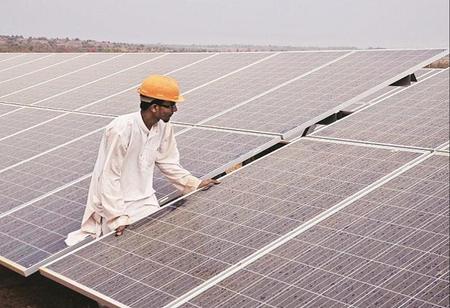
India to Slash Tax on Solar Module Import to Empower Local Manufacturers


India would be imposing a 40 percent customs tax on imports of solar equipments from April next year. This initiative has been taken to cut down the country’s dependency on foreign supplies and to boost domestic manufacturing of the equipment, states the renewable energy ministry.
The finance ministry has accepted the proposal, which would also include a 25 percent customs duty on imports of solar cells, the ministry said in a note published on its website. However, it didn’t mention the duration of the taxes would be applicable.
Pinaki Bhattacharyya, country head for India at renewable power producer Amp Energy says, “The rates are too high and will increase the cost of solar power for distribution companies and consumers alike. The government should have provided direct subsidies to manufacturers to help them scale up their capacities and this would have been beneficial to the sector.”
Also, India had initially proposed taxes on solar power equipment imports in the middle of last year following virus-related supply chain disruptions and deadly border skirmishes with China, which supplies close to 80 percent of India’s solar equipment.
As a measure of switching to cleaner energy sources, India is setting up to strech its renewable power capacity by fivefold to 450 gigawatts by 2030. Some 280 gigawatts of that will come from solar, according to the ministry. The government sees the domestic solar manufacturing industry as vital to reaching that target, while the tax plan is also part of a broader push to help create jobs and revive an economy battered by the pandemic.
At present, India levies a 14.5 percent safeguard tax on imports of solar cells and modules from most countries that include China, which is set to expire in July. Also, Companies bidding in project auctions should take into account the government’s new tax plans, according to the ministry.